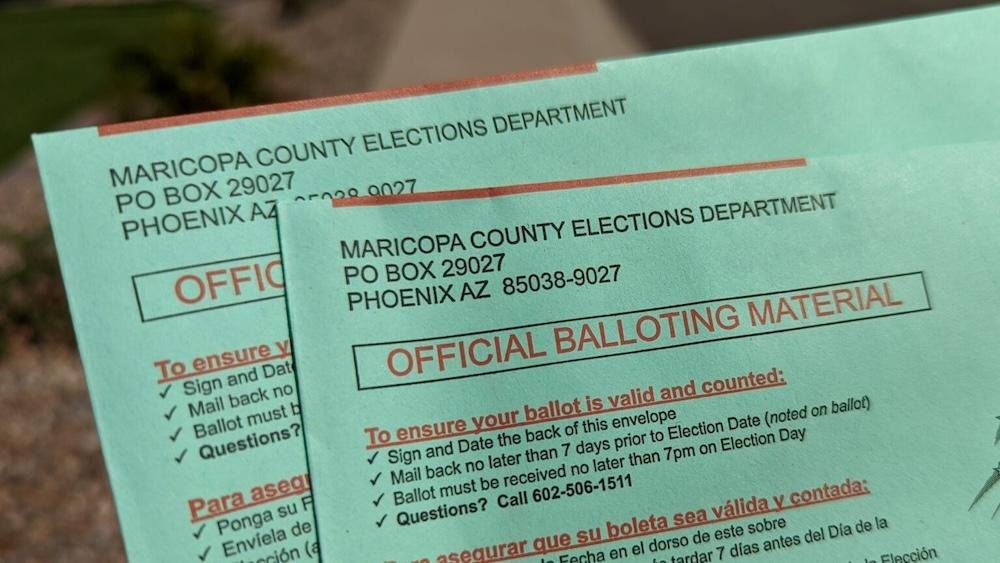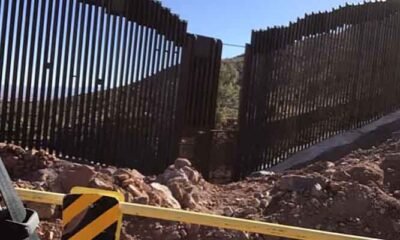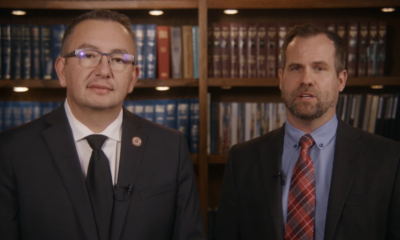arizona
Arizona Lawmakers Sanction Extensive List of Questions for November Ballot

Arizona lawmakers have approved the final language for the questions that voters will see on the November ballots after a lengthy debate on Monday. The descriptions, which must be authorized by legislators, detail legislative referrals and citizen-led ballot initiatives.
This year, Republican lawmakers have added 11 legislative referrals to the ballot, partly to circumvent vetoes by Democratic Gov. Katie Hobbs. Several of these issues were previously vetoed by Hobbs as standard legislative bills. As a result, this year’s ballot is anticipated to be two pages long, combining legislative and citizen-initiated measures alongside local municipal bond overrides.
During a four-hour joint legislative committee meeting, Democratic and Republican lawmakers clashed over the descriptions of the ballot measures. Despite several amendments proposed by Democratic members, all failed.
“It feels again like one more uphill battle to try to clarify some stuff,” remarked House Democratic Leader Lupe Contreras during discussions. Speaker Ben Toma, R-Peoria, responded, “We are not going to relitigate or re-debate the bill.”
The language for Prop 133, which amends the Arizona Constitution to solidify the current primary election system, passed without debate. The measure aims to prevent changes like ranked choice voting.
Prop 134, addressing citizen-led ballot initiatives, would require signatures from 10% of voters in the latest gubernatorial election for statutory changes and 15% for constitutional amendments, from each legislative district. Currently, these percentages apply state-wide. Republicans argue it gives a voice to voters outside Maricopa County, while Democrats say it empowers partisan districts to block popular measures.
Prop 135 seeks to restrict the governor’s emergency powers, limiting them to 30 days unless extended by the legislature. Democrats argue the measure undermines democratic processes.
Prop 136 would permit lawsuits to contest the constitutionality of ballot initiatives if filed at least 100 days prior to the election. If found unconstitutional, the initiative would be removed from the ballot.
Prop 137 would remove term limits for Arizona judges, replacing them with retention votes under specific conditions. Critics claim the measure aims to protect two Arizona Supreme Court Justices up for retention who supported an 1864 territorial abortion ban.
Prop 138 proposes allowing employers to pay tipped workers 25% less than the current minimum wage. Critics argue this would cut wages for tipped workers, while supporters frame it as the “Tipped Workers Protection Act.”
Prop 311 would establish a $250,000 death benefit for the families of first responders killed in the line of duty, funded by a new $20 fee on criminal convictions. It also proposes stricter penalties for aggravated assault against first responders.
Prop 312 would require municipalities to offer tax breaks to property owners mitigating issues caused by homeless encampments, a measure which cities claim could put them in an impossible legal position.
Prop 313 mandates life imprisonment without parole for adults convicted of class 2 felony child sex trafficking. Critics warn it could unjustly impact trafficking victims used to lure others.
Prop 314 seeks to enforce that unlawful immigrants enter Arizona through official ports of entry, facing legal challenges and described by opponents as “SB1070 2.0.”
Prop 315 prohibits new statewide rules costing over $500,000 in five years from becoming effective without legislative approval.
The One Fair Wage initiative, still awaiting final signature verification, aims to increase the minimum wage to $18 an hour and reduce employers’ reliance on tips to meet wage requirements. It garnered unanimous draft language approval.
The Arizona Abortion Access Act, potentially enshrining reproductive rights in the state constitution, saw heated discussions over terminology, with proposed amendments to replace “unborn human being” with “fetus” failing along party lines.
Finally, the Make Elections Fair Arizona Act proposes eliminating partisan primaries in favor of an open primary system, receiving unanimous approval for its draft language.

















